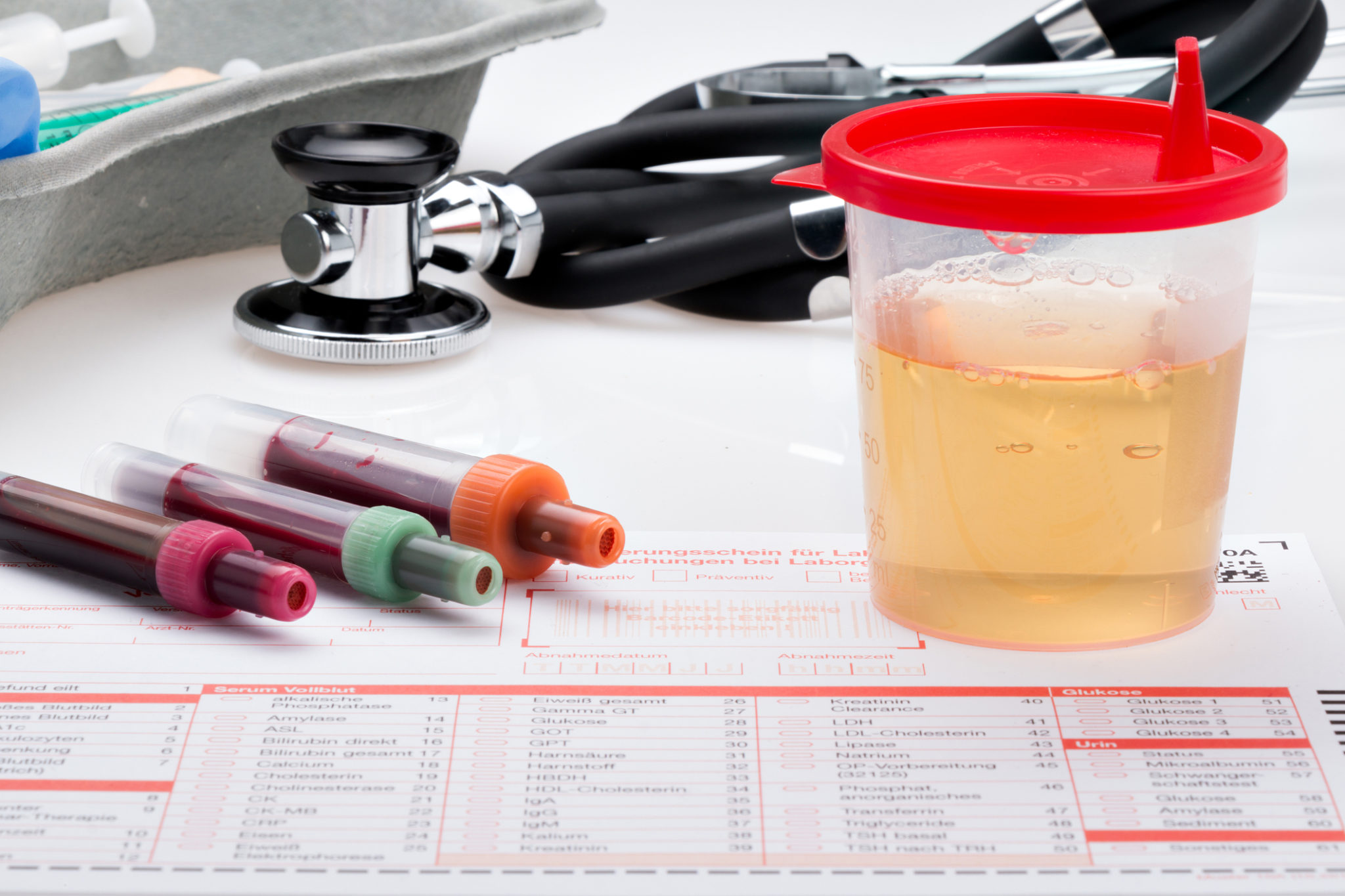“Groundbreaking discoveries about the brain have revolutionized our understanding of compulsive drug use, enabling us to respond effectively to the problem.”1
I have hope that someday we will live in a world where the above statement, from the National Institute on Drug Abuse, is true, particularly where we respond effectively to the epidemic of substance dependence across our nation (i.e., the problem).
However, despite almost a century worth of study, those who suffer from severe substance use disorders or addiction continue to be a marginalized population in our communities. This marginalization takes the form of continued stereotypes and myths about addiction, as well as what I consider unfair and unethical legal penalties for non-violent drug offenders. Another profound way those who suffer from addiction are marginalized is our collective snubbing of information, based on the science of addiction and recovery, on how to provide effective treatment for those who suffer.
Addiction is a chronic disease of the brain
Scientists have done their part and taught us that addiction is a chronic disease of the brain. According to the National Institute on Drug Abuse,
“As a result of scientific research, we know that addiction is a disease that affects both the brain and behavior. We have identified many of the biological and environmental factors and are beginning to search for the genetic variations that contribute to the development and progression of the disease. Scientists use this knowledge to develop effective prevention and treatment approaches that reduce the toll drug abuse takes on individuals, families, and communities.”1
Despite our knowledge that addiction is a chronic disease, treatment providers and third-party payers (i.e., insurance companies) continue to treat the problem using acute care, or short-term models. For example, most insurance companies provide 28 days of coverage for addiction treatment. Some may extend treatment for 90 days which includes outpatient treatment, but these cases are rare. And, most disconcerting, the vast majority of people who meet the criteria of severe substance dependence do not have the resources to access treatment at all.
Continuing to treat addiction acutely is like stabilizing a diabetic patient in the hospital, giving them 30 days of insulin, and then sending them home to attend support meetings with other diabetics.
Nothing against peer support meetings, which I fully believe in, but it isn’t quite enough. If we treated the chronic disease of diabetes from this kind of acute model, we shouldn’t be surprised when the diabetic comes into the emergency room in a diabetic coma and/or needs emergent care continually. This makes absolutely no sense to anyone, would cost more money, and has terrible patient outcomes. Yet, this is how we continue to view and treat addiction sufferers.
The very nature of chronic diseases, like diabetes and addiction, is that they are always complex, moving targets that continue across a lifetime, and need consistent monitoring and support. Implementing chronic care models (or CCMs) to combat chronic diseases not only saves and improves the quality of life for individuals and families, it also saves money and resources for everyone over time. Proponents of CCMs advocate for a “redesign of healthcare to provide continuous, coordinated multi-faceted systems of health service delivery.”2 A redesign is exactly what we need.
What if we applied the chronic care model to addiction?
What would happen in a world where a chronic care model was applied to the chronic brain disease of addiction? In my estimation, implementing this type of model would have three important impacts.
- Extending the continuum of care: Providers and third party payers would support and implement extending the continuum of care for several months, and where appropriate years, post treatment. The impact of providing post-treatment support and care long term is a game changer when it comes to providing care for this population. For example, by extending the continuum of care, recovery professionals could intervene and prevent use events/relapses before they occur. Just as important is providing support and care immediately following a use event, preventing further decompensation and difficulty. By staying in contact and providing support to recovering persons, these types of preventative measures naturally occur preventing possible severe consequences and death from relapse. Extending the continuum of care also saves money by keeping people moving forward in their recovery and reducing the frequency and need of emergent care.
- Communication and coordination: Providers and third party payers would support the coordination and communication between multiple healthcare providers/systems, so all professionals providing care would be on the same page and have access to the same information. Being able to coordinate care between treatment professionals, primary care physicians, psychiatrists, therapists, counselors, nutritionists, and peer support providers would minimize confusion and maximize effectiveness with improved outcomes and decreased decompensation/progression of the disease of addiction. Absent of this coordination, care providers work in silos, almost blind to the perceptions and efforts of other potential care team members.
- Gathering data and doing recovery research: Extending the continuum of care allows recovery professionals to gather longitudinal data, and analyze that data to refine treatment models and to provide improved support. Technological advances in providing recovery support, via telehealth and/or video health, make data gathering better than historically used methods. In addition to these active ways of gathering data, data can now be gathered passively via computer software platforms, mobile phone applications, and internet surveys—making it even easier to collect real-time data. Gathering and analyzing recovery data is an essential but not often talked about component of chronic care models.
I still hope that someday we live in a world where our “groundbreaking discoveries” about the chronic brain disease of addiction are translated into treating and supporting addicts and those who love them long-term. Extending the continuum of care long-term would have a substantial impact on individuals, families, communities, and our nation as a whole. If we continue to treat addiction through acute care models, we will continue to get the same devastating and epidemic outcomes.
References:
-
National Institute of Drug Abuse: https://www.drugabuse.gov/publications/drugs-brains-behavior-science-addiction/preface.
-
Martin, C. M. (2007). Chronic disease and illness care: Adding principles of family medicine to address ongoing health system redesign. Canadian Family Physician, 53(12), 2086–2091.
Thomas G. Kimball, PhD
Website:
http://www.thisismap.com/
Thomas G. Kimball, Ph.D., LMFT, is the George C. Miller Family Regents Professor at Texas Tech University and the Director of the Center for Collegiate Recovery Communities. Dr. Kimball has been part of the MAP team since 2012 and serves as Clinical Director, where he oversees and consults on the implementation of extended recovery modalities, techniques, and practices on individuals who undergo treatment for Substance Use Disorder (SUD).
He has received numerous teaching awards for his courses on families, addiction, & recovery. He is the author of several peer-reviewed articles on addiction and recovery in respected medical journals, a frequent contributor to leading addiction and recovery publications online, and co-authored the book,
Six Essentials to Achieve Lasting Recovery, by Hazelden Press.
In addition to consulting and presenting on recovery-related issues across the U.S. and internationally, he frequently writes articles pertaining to emerging addiction recovery data, recovery techniques and modalities, the science behind addiction, the addiction crisis, and long term treatment for the chronic disease of addiction.
Dr. Kimball has made the focus of his career studying collegiate and long term addiction recovery by focusing on factors that enhance long term recovery and improve the treatment industry at a local, national, and international level. Follow him @drtomkimball
Comments:
Leave a Reply
Comment will held for moderation


















Often, when I talk about addiction as a chronic brain disease some people rush to make the argument that people simply have the choice to use drugs or not. One of the issues with this argument is that it relies upon outdated social paradigms, and completely disregards the volume of scientific data that shows addiction is a chronic brain disease.
Moreover, choice and disease processes are not mutually exclusive ideas. In fact, our own choices often are a factor in disease formation.
For example, if you choose to eat too many cheeseburgers, it may be a factor in your development of heart disease. The real question that interests doctors and scientists is why do some people who eat too many cheeseburgers not develop heart disease and others do? Or even more complicated, why do some people who eat healthy their whole lives still develop heart disease?
The answer is genetic predisposition.
The same is true for alcoholism/addiction. How many people in the world have made the choice to drink alcohol (a legal drug)? And, why are most people able to drink responsibly while others develop alcoholism/addiction?
The answer is genetic predisposition.
Some people develop addiction after only a few times using alcohol or other drugs. For others, it takes more time to develop. But, even though choice is a factor in addiction, no one chooses to have addiction manifest nor desires to suffer the difficult consequences that accompany it, which can include several horrendous social consequences, cirrhosis, digestive issues, heart disease, stroke, loss of brain funtion, several other health issues, too numerous to list exhaustively, up to and including death.
If interested in learning more, I advocate Dr. Kevin McCauley work at https://www.theinstituteforaddictionstudy.org/
There are many advocates who claim a “right” way to heal addiction. Because alcoholism and addiction are chronic brain diseases, I am a proponent of following a program of ongoing recovery that lasts throughout the afflicted person’s lifetime, be it a spiritual program of action or otherwise.
Simply stated, the process of recovery is strengthening the pre-frontal cortex of the brain to better cope with stress and perceived threats which addicts feel all the time. Adhering and acting upon spiritual or moral principles, like those found in 12 step recovery programs do just that. These principles and activities can strengthen our ability to cope, and with consistent effort develop better and better coping skills over time. Moreover, attending groups like this on a regular basis create an organic support network for those who suffer from this disease.
I have seen many people in my years of practice find healing and wellness by embracing such a program of recovery, be it through a rehab facility, 12 step group, post-treatment recovery services, a religious or community organization or otherwise. An ongoing program of recovery leads to a day by day reprieve from obsession and compulsion, and the strong grip of the disease of addiction.
This all sounds reasonable but a lot of the stigmas that occurs are in majority true when related to substance abuse. I can never forget ( and I really wish that I could ) the many times when I was growing up at the continued peer pressure about drinking alcohol, smoking pot, and even encouraged to try other substances … because of this I cannot in my good and reasonable conscience accept that most drug abuse problems is an innocent brain disease … in other words, most abuse problems were self-caused whether individually or by the terrible Western Society that we all live in … the problem is with the apparent fame one has when involved in substance abuse … and yes, it is fame since I was not involved either because I could not consume like my peers or I chose not too and because of this inability or choice I was looked down upon and ridiculed ( remember when one is young and ridiculed by one’s peers it can be socially dramatic ) … I say forget about all these treatments after the substance abuse caused the severe problems and concentrate on how to change the stupid behavior BEFORE it becomes a problem in other words, keep trying to make the behavior of any substance abuse NOT COOL … ever since the summer of 2007 I have been living with the results of substance abuse of alcohol and it never gets better … it is no help that people write about how this a disease because self caused disease based on a sick Western society of what certain people feel is COOL is not really a disease but a bad behavior problem in which basic thinking needs to change …